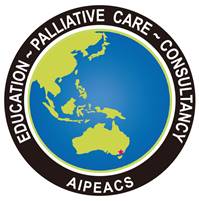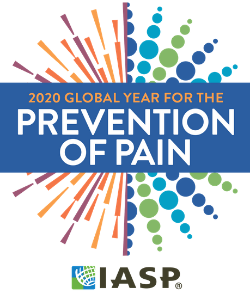
 【7月号の掲載が諸般の事情のため大変遅くなりましたことをお詫びいたします。
【7月号の掲載が諸般の事情のため大変遅くなりましたことをお詫びいたします。
なお、8月号は休刊とさせていただき、次回は、9月号となります。事務局】
日本語訳 監修 木下佳代子 ジェックス参与
 国際疼痛学会(IASP= International Association for the Study of Pain) の2020年のテーマは、「世界疼痛予防」です。今年の目標は、疼痛予防戦略を研究者、医師や患者に広めることです。 今年のテーマに関するファクトシート(実証資料)の日本語版は、下記のリンクよりご覧になれます。
国際疼痛学会(IASP= International Association for the Study of Pain) の2020年のテーマは、「世界疼痛予防」です。今年の目標は、疼痛予防戦略を研究者、医師や患者に広めることです。 今年のテーマに関するファクトシート(実証資料)の日本語版は、下記のリンクよりご覧になれます。
https://www.iasp-pain.org/Advocacy/GYAP2016Detail.aspx?ItemNumber=10128
今年のテーマに沿った2020年中に実行されたものについてはIASPサイト上に掲載することができます。
今月は、緩和ケアの理解を深めるための資料のリストを下記に列記します:
- 1. 終末期医療 – Let’s Talk は、王立オーストラリア医師会作成の有用なファクトシートで
下記の項目についての要旨が提供されています:
・何故治療方法を変更する必要があるか
・優れた終末期ケアの5つの要因
・組織と医療・保険制度の中に5つの要因を組み込むための組織改革
https://www.racp.edu.au/docs/default-source/advocacy-library/pa-racp-end-of-life-fact-sheet.pdf
- 2.腫瘍学 – ICU – 緩和ケアのインターフェース(共通領域)
ICUにおけるがん患者に対しての治療及びチーム間の意見の相違(コンフリクト管理)にどう対処すべきかについて役立つファ クトシートです。
https://www.mypcnow.org/fast-fact/the-oncology-icu-palliative-care-interface/
- 3.終末期の家族に余命について説明する際の不確実性について
Managing uncertainty and references to time in prognostic conversations with family members at the end of life: A conversation analytic study (2020), Anderson, Stone, Low, Bloch.
https://journals.sagepub.com/doi/pdf/10.1177/0269216320910934
この研究の目的は、末期の最終段階で医療者と患者の親族や友人が余命について対話する際にどのように不確実な状態につい
て対応するかであります。この研究の結果として役立つ提案についても書かれています。
- 4.ヨーロッパ緩和ケア・ジャーナル:http://www.haywardpublishing.co.uk/ejpc.aspx
この件については2019年10月に紹介しましたがもしまだ読まれていない場合は、非常に有益なの
でここに改めて取り上げます。
-
このジャーナルは、既に廃刊となりましたが保存記録(1994-2018)が全て無料でアクセスできます。このアーカイブ
-
ブスは、啓蒙的で、事実に基づいており、ヨーロッパ及びそれ以外の国々からの素晴らしい知識の宝庫であります。このア
-
ーカイブスを利用するには、調べたいことの年号、課題、記事をスクリーン右端から選んで登録する必要があります。
-
このアーカイブスには、24年間の世界中の緩和ケアの歴史が詰まっています。
-
緩和ケア以外で興味のありそうな情報について:
症状が悪化している患者の扱い方(第1版)Managing Deteriorating Patients 1st ed(2018), Chalwin, Jones, Psirides &
-
Radford: この無料のE bookは、症状が悪化している患者に携わる病院緊急対応チームメンバーとそのリーダーのために書
-
かれたものです。 その中で下記を含む実用的なアドバイスを提供しています。
- (1) どのようにして効果的な緊急対応システムを構築し、運営していくか?
- (2) チームマネジメントの原理
- (3) 臨床症状悪化に対するA to Eのアプローチ
- (4) 急死への対応についてのアプローチ
- (5) 低酸素血症、意識変容、低血圧、乏尿症、敗血症などよく見られる急性臨床症状へのアプローチ
-
このE bookの日本語版は、右URLよりダウンロードできます。 https://www.ihecj.jp/rrs/
-
-
もし他の方々に参考になるような日本の文献があれば、私に送ってくださいませんか。
-
次回に皆様と共有させていただきます。
-
- いつものことですが、あなたが特に追加情報をご希望の分野があれば、julie@palliativeeducaion.com までお知らせくだされば、必ず
- 次回に取り上げます。緩和ケアの分野でみなさまの経験されたこと、疑問点、ジュリーズ・コーナーに対する感想なりご意見、ご要望など
- どんなことでも結構です。直接、ジュリーさんに、メールを出しにくい場合は、ご遠慮なく、ジェックス事務局(nurse@jeccs.org ) まで、日本語で結構です。お待ちしています。
- 緩和ケアについて、あなたのお考えや経験について知りたいと思います。お互いに学び合うことが出来ると考えます。
- では、次号でお目にかかります。ごきげんよう! ジュリー
-
Disclaimer: July 2020 免責条項:
Australian International Palliative Education and Consultancy Services (AIPEACS) は、Julie’s Corner シリーズ内の内容につき正確な情報の提供に細心の注意を注いでいますが、特にある事柄についての専門的意見を提供するものではありません。このシリーズに含まれる情報は、独立した専門家の見解に取って代るものではありません。また、医療上の助言として利用したり、何らかの疾患の治療、手当、又は、予防のために使用されるものではありません。
AIPEACSは、このシリーズにより提供される情報の利用、依存によるいかなる法的責任、怪我、紛失、損害については、責任は負いません
Australian International Palliative Education and Consultancy Services Pty. Ltd
Julie’s Corner: July 2020 (原文) [4月号より英文原文も掲載いたします]
-
The International Association for the Study of Pain (IASP) theme for 2020 is the “Global Year for the Prevention of Pain”. This year the focus is on disseminating pain prevention strategies to researcher’s, clinicians and patients.
The fact sheets to support this year’s theme are available in Japanese using the following link https://www.iasp-pain.org/Advocacy/GYAP2016Detail.aspx?ItemNumber=10128
Any activities completed during 2020 to support the theme can be advertised on the IASP site.
This month I have provided a list a few resources to further our understanding of palliative care
- 1. End of Life Care – Let’s Talk is a useful fact sheet developed by the Royal Australasian College of Physicians (RACP) that provides an overview of:
- – Why we need to change our practice
- – The 5 elements of good end of life care
- – System changes required to embed the 5 elements at the organisation and health system level
- https://www.racp.edu.au/docs/default-source/advocacy-library/pa-racp-end-of-life-fact-sheet.pdf
- 2. The oncology – ICU – Palliative Care Interface (Bhatnagar, Arnold) is a useful fact sheet that discusses an approach to conflict management between treating teams for cancer patients in ICU.
- https://www.mypcnow.org/fast-fact/the-oncology-icu-palliative-care-interface/
- 3. Managing uncertainty and references to time in prognostic conversations with family members at the end of life: A conversation analytic study (2020), Anderson. Stone, Low, Bloch. https://journals.sagepub.com/doi/pdf/10.1177/0269216320910934
The objective of the study was to understand how clinicians and the relatives/friends of patients at the very end of life manage uncertainty and reference time in prognostic conversations. There are some useful recommendations for the practical implications of the outcomes of this study.
- 4. European Journal of Palliative Care http://www.haywardpublishing.co.uk/ejpc.aspx
We discussed this one in October 2019, however in case you did not read this update I am repeating the information as this resource is very useful.
This journal has ceased publishing, however there is free access to their entire archive (1994-2018). This archive is a fantastic repository of thought provoking and well evidenced articles from across Europe and beyond.
To access the archive, you will need to choose the year, issue and article from the right hand side of the screen and then register. There are 24 years of global palliative care history in the archive.
Resources not specific to palliative care that may be of interest
Managing Deteriorating Patients 1st ed (2018), Chalwin, Jones, Psirides & Radford
This free E book has been written for team members and leaders of hospital rapid response teams who attend deteriorating patients, and provides pragmatic advice including:
- – How to design then run effective rapid response systems
- – Principles of team management
- – An A to E approach to clinical deterioration
- – An approach to managing acute dying
- – Approaches to common acute clinical conditions including hypoxia, altered consciousness, hypotension, oliguria and sepsis
- A Japanese translated copy of the E book can be downloaded https://www.ihecj.jp/rrs/
- If you know of any specific Japanese guideline’s or articles that would be valuable for others to read, please forward these on to me and I can share these in the next update.
- As always, if you have any particular areas you would like additional information about please forward your request to julie@palliativeeducation.com and we will ensure this is discussed. Please let me know how you are going as we would enjoy sharing your thoughts and experiences on palliative care, so that we can continue to learn from each other.
- I am looking forward to our next month’s catch up. Take care, Julie
